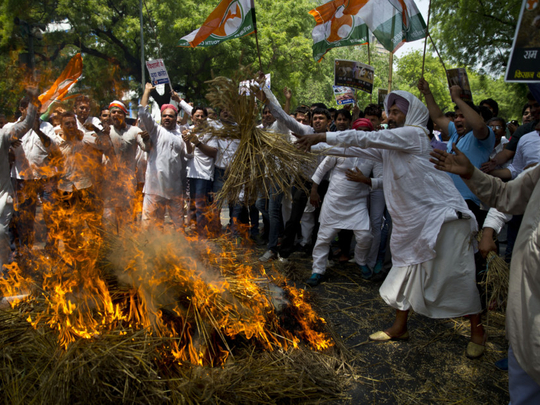
The Indian farming community consists of farmers, who own land and workers at unskilled and semiskilled levels working on agricultural farms. When the government extends subsidy and support to the agricultural farmers in times of distress, it largely reaches the farmers that own the land as opposed to the workers who really work on the land. Whenever the agriculture sector goes through a crisis, millions of workers in the lower income group that are already at a vulnerable level are driven to impossible conditions.
The problem is that the fortunes of agriculture almost entirely depend upon monsoon conditions and therefore, agriculture suffers in the case of excess rain or drought conditions.
Now, Prime Minister Narendra Modi’s government appears to think that millions of workers in the agricultural sector can be provided adequate and remunerative employment only by rapid industrialisation. Those in the know of things, cannot but conclude that Modi government’s expectations are utopian.
What is needed by the country today is more agricultural operations and not less, which alone will ensure steady progress, employment generation at various levels and overall growth with equanimity. Industrial growth is needed, but it should complement the agricultural growth and not substitute it and it should not be encouraged at the cost of agriculture. It would be suicidal to sacrifice the interests of agriculture for the sake of industrial growth.
Even without the Land Acquisition Bill, India has lost a lot of cropped areas in the past ten year due to a buying spree of agricultural land for various non-agricultural purposes. This should immediately stop.
There are around 18000 hectares of allotted industrial land in twenty states, which remain unused. There are numerous projects in India that are occupying a huge area of land without any operations. With that in mind, it is surprising that Modi has yet not thought about utilising such land for industrial and other productive purposes before focussing on passing a Land Acquisition Bill.
It is high time that we realise that the recurring crisis of Indian agriculture can be overcome only by adopting innovative and appropriate technology practices in tune with India’s strength and ground realities. The government should focus on this, rather than trying to divert national attention to the Land Acquisition Bill, which is only proving to be counter productive.
Sadly, instead of having technologists and scientists discussing our agricultural problems, we are only hearing politicians talking about the crisis with obvious intentions of getting sympathy of the agricultural workers who could be a big vote bank for them.
— The reader is an Indian founder trustee of an NGO based in Chennai, India









